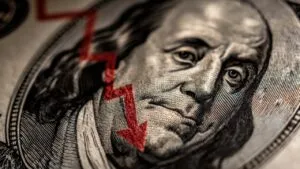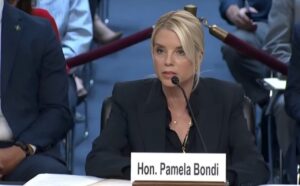The First Amendment to the United States Constitution is a cornerstone of American democracy, protecting five fundamental freedoms:
- Speech
- Religion
- Press
- Assembly
- Petition
Understanding these rights is essential for every citizen as they form the basis of a free and open society.
Table of Contents
ToggleAn Overview
The First Amendment provides crucial protections that prevent government interference in key areas of personal and public life. It is just one of many amendments passed through the years.
It ensures that individuals can express themselves freely, practice their chosen religion, access information through a free press, gather peacefully, and seek redress from the government.
- Text of the First Amendment: “Congress shall make no law respecting an establishment of religion, or prohibiting the free exercise thereof, or abridging the freedom of speech or of the press; or the right of the people peaceably to assemble, and to petition the Government for a redress of grievances.”
- Purpose: To protect individual freedoms from government interference and ensure democratic participation.
These freedoms are not just legal technicalities; they are the bedrock principles that allow a democratic society to thrive.
Without them, the exchange of ideas and the ability to challenge and improve government policies would be severely hindered.
The First Amendment ensures that diverse viewpoints can be heard and that citizens have the tools to hold their government accountable.
Freedom of Speech

Freedom of speech is the right to express one’s opinions without censorship, restraint, or legal penalty.
The fundamental freedom encompasses spoken words, written communication, and symbolic acts like protests and demonstrations.
- Definition: The right to express any opinions without censorship or restraint.
- Protections: Includes spoken words, written communication, and symbolic speech.
Certain types of speech, such as defamation, true threats, obscenity, fraud, and incitement to violence, are not protected. These exceptions are in place to balance individual expression with the need to protect others from harm.
Despite these limitations, freedom of speech remains essential for:
- Personal expression
- Societal progress
- The democratic process
The importance of freedom of speech cannot be overstated. It allows individuals to share their thoughts, debate ideas, and advocate for change.
Freedom of Religion
Freedom of religion ensures that individuals can practice any religion or none at all without government interference.
This right is protected by two key clauses in the First Amendment:
- The Establishment Clause
- The Free Exercise Clause
The Establishment Clause prohibits the government from establishing an official religion or favoring one religion over another.
It means that government policies and actions must remain neutral toward all religions, preventing the establishment of a state-sponsored religion.
The Free Exercise Clause, on the other hand, protects individuals’ rights to practice their religion as they see fit.
It includes the right to worship, follow religious practices, and observe religious holidays.
The importance of freedom of religion lies in its guarantee of personal autonomy in matters of faith and conscience, allowing individuals to make their own decisions about their beliefs and religious practices.
Together, these clauses ensure that religion remains a matter of personal choice and not a government mandate.
It fosters a pluralistic society where diverse religious beliefs can coexist, contributing to the American culture and promoting tolerance and understanding among religious communities.
Freedom of the Press

Freedom of the press is the right of journalists to publish news and opinions without government interference.
It extends to all forms of media, including newspapers, television, radio, and online platforms. The scope of freedom of the press is broad, encompassing the right to investigate, report, and criticize government actions and policies.
It is vital for a well-informed public and serves as a check on government power.
Journalists play a crucial role in uncovering corruption, holding public officials accountable, and providing citizens with the information they need to make informed decisions. The importance of freedom of the press cannot be overstated.
A free press is essential for a functioning democracy as it ensures transparency and accountability.
Through the platform for diverse viewpoints and investigative reporting, the press helps to keep the public informed and engaged in civic life, fostering a healthy and vibrant democratic society.
Freedom of Assembly
Freedom of assembly is the right to gather in groups for any peaceful purpose.
This right allows individuals to come together to express, promote, and defend their ideas collectively.
Applications of this freedom include protests, rallies, public demonstrations, and other forms of collective expression.
The ability to assemble peacefully is crucial for social and political movements, enabling people to voice their concerns, advocate for change, and show solidarity with others who share their views.
The importance of freedom of assembly lies in its role in facilitating collective action and public participation in the democratic process.
Allowing individuals to unite and demonstrate their support or opposition to various issues, strengthens the ability of citizens to influence government policies and societal norms.
Freedom to Petition
Freedom to petition is the right to make complaints or seek assistance from the government without fear of punishment.
It encompasses a variety of activities, including signing petitions, lobbying, and attending government meetings.
Forms of petitioning can range from submitting written requests to public officials to organizing campaigns that seek policy changes.
The freedom provides a direct way for citizens to engage with their government and advocate for their interests and concerns.
The importance of the freedom to petition lies in its empowerment of individuals to influence government decision-making.
Providing a formal mechanism for citizens to express their grievances and seek redress, enhances democratic participation and ensures that the government remains responsive to the needs and wishes of the people.
Legal Interpretations and Limitations
The Supreme Court plays a crucial role in interpreting the scope and limitations of First Amendment rights.
Through various landmark cases, the Court has defined and refined these freedoms to balance individual rights with public order and safety.
- Supreme Court’s Role: Interprets the scope and limitations of First Amendment rights through case law.
- Balancing Act: Ensures that these freedoms are protected while considering public order and safety.
Legal interpretations of the First Amendment are dynamic and evolve over time.
For instance, the Court has ruled on cases involving hate speech, campaign finance, and digital media, each time adjusting the boundaries of what is considered protected speech.
References
- freedomforum.org – What Is Defamation? Everything You Should Know
- uscourts.gov – First Amendment and Religion
- humanrightshouse.org – Freedom of assembly
- mass.gov – Types of petitions








